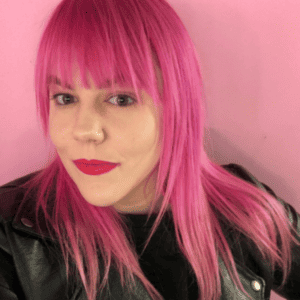Our very own Kelly Seagraves shares their personal tips to manage anxiety
Disclaimer: I have no profound scientific grasp on the diagnosis or treatment of anxiety disorders. My advice has no basis more reliable than my own experience. I am not a doctor. I am not a psychiatric nurse practitioner—trust me.
Do you remember “The Scarlet Letter,” where the protagonist is forced to wear a scarlet “A” sewn into her dress for the remainder of her life? Metaphorically, so do I—but while Hester’s stood for “adultery,” mine stood for “anxiety.”
As a kid, I was anxious about carbon monoxide poisoning and ghosts. As a teenager, I was anxious about my body. As a young adult, I was anxious about relationships. And now? Let me count the ways …
Sometimes, it’s just a dull hum lingering in the back of my mind. Other times, it’s a deafening siren. Sometimes, it seems that my whole life has been a fog of worry. But the older I get, the more I realize that while my anxiety has shaped me, it does not define me.
Advice is often just a cheap form of nostalgia, so take everything herein with a grain of salt. These are just a few lessons—some easy, some hard—that I’ve learned along the way.
“Do One Thing Everyday That Scares You”
At the heart of any protagonist’s journey lies the relentless pursuit of this mantra. Make it a daily ritual, and it can become your lifeline against the suffocating grip of fear. Consciously embracing discomfort can empower and liberate you. Each step taken in the face of fear is a victory. Anything you can do, you can do, afraid. Cry, scream, sweat, but do it anyway.
Deconstruct Your Fears
Irvin Yalom is an existential psychotherapist. His writing on existential psychology centers on what he refers to as the four “givens” of the human condition: isolation, meaninglessness, mortality, and freedom, and discusses ways in which one can respond to these concerns either in a functional or dysfunctional fashion. For this, I made a charming little graphic. Whether or not you choose to consider these tips is entirely up to you.
Make Your Body Happy
Drink water, but realize you’re doing more than just drinking water. You’re prioritizing yourself for a moment in time, however brief it may be. Now you’ve drained the glass and you’re feeling better. How else can you chase that feeling?
All I can do is list a few things I do in the moments I reserve for myself. I like to use serums and creams to moisturize and care for my skin. I find that sitting on the ground outside is centering and helps me align with the parts of myself that are wild and organic. I like being in water, whether that’s showering or swimming. Being wet and clean opens your pores and makes your skin feel pleasantly tingly. I breathe deeply and let out a long sigh, visualizing my intrusive thoughts as they dissolve into an endless sky. I use a massage gun on my joints that ache from tension. I sleep when my body and mind tell me to.
Notice when your body feels good. Explore and expand your understanding of your body. Define your body’s needs and limitations. You can start with something simple—drinking water.
“Care, Don’t Carry”
A therapist once introduced me to the above mantra. This idea was a struggle for me at first. I remember writing it on my hand with a permanent marker so it would stay with me for a while. It’s been about 7 years now that I’ve been sitting with the concept. I take it to mean that your feelings and emotions are non-negotiable, but what you do with them is yours to define.
You WILL continue to feel anxiety. You’re a soft human. But if you sit with those feelings, slowly accepting them for what they are and soothing them away, you will eventually come to realize that carrying them never amounts to any measurable change. Bearing that weight is a form of mental self-harm, and the logic behind doing so is faulty. Anxious rumination won’t change the past, present, or future. You’re anxious because you care, and you deserve to care without the sharp pain of worry. Shelve the worry when you can. Just care. Care radically. Care for your loved ones, your pets, your passions, your job, your community, politics, justice, the world. But know that the energy you expend anxiously monitoring and guarding those things—letting them drag you around by the collar—will only hinder your ability to live and love freely.
You deserve freedom. Everyone deserves freedom.
You can follow Kelly Seagraves at @sapphic.design.



